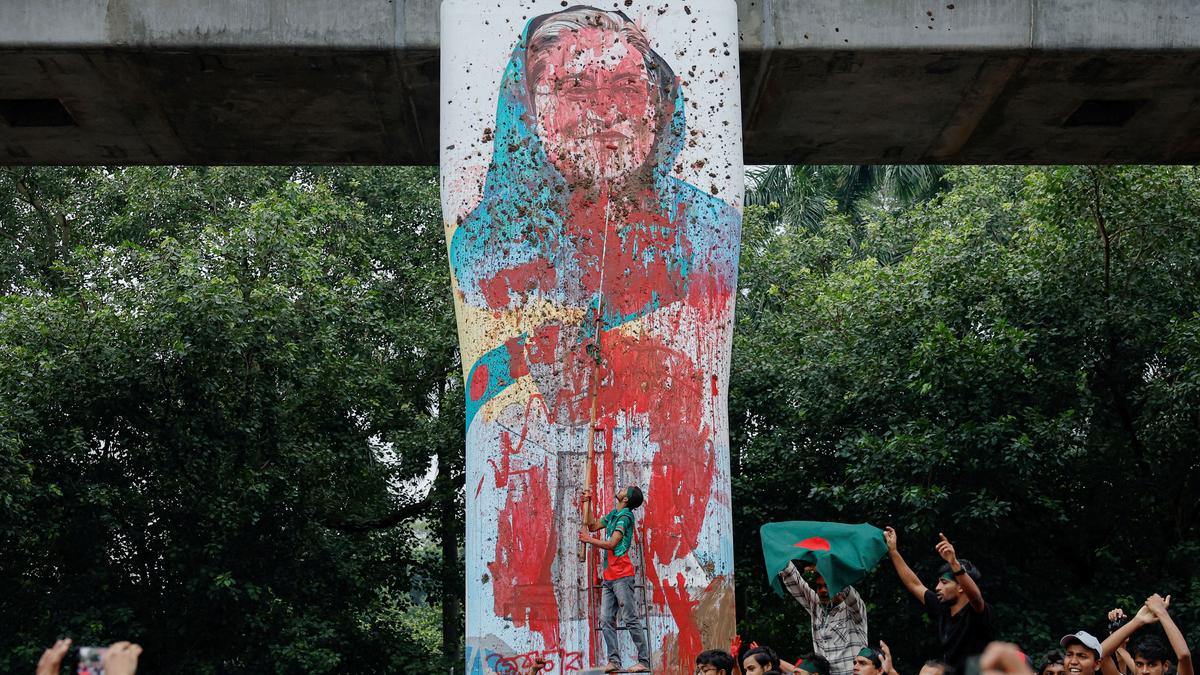Bangladesh’s former Prime Minister, Sheikh Hasina, once a powerful political figure, now finds herself at the center of a legal storm. On July 10, 2025, the country’s International Crimes Tribunal formally indicted her in a case involving crimes against humanity, a move that sent shockwaves through the nation. This development marked a significant escalation in the ongoing legal battle surrounding the tumultuous events of the past year.
The case stemmed from the tumultuous student-led protests that rocked Bangladesh in July and August of the previous year. Alongside Sheikh Hasina, the indictment also named former Home Minister Asaduzzaman Khan and former Inspector General of Police Abdullah Al Mamun. These high-profile figures faced accusations of attempting to quell the protests through questionable and potentially unlawful means.
One particularly intriguing twist in the unfolding saga was the decision of Abdullah Al Mamun to plead guilty and offer to serve as a state’s witness in the case. This unexpected turn of events added a layer of complexity to an already convoluted legal drama. Mamun’s willingness to cooperate raised speculation about the potential revelations and implications his testimony could bring to light.
Amidst the legal proceedings, the dynamics of power and influence in Bangladesh’s political landscape were laid bare. The trial’s progression with Mamun as a key witness provided a unique insight into the inner workings of the government and its response to civil unrest. The implications of these revelations extended far beyond the courtroom, sparking debates and discussions across the nation.
Sheikh Hasina’s decision to flee to India following the toppling of her government underscored the high stakes involved in the case. The once-dominant political figure now faced a legal battle that could shape her legacy and influence the future trajectory of Bangladesh’s political scene. As the trial continued in her absence, questions loomed over the potential outcomes and the broader impact on the country’s governance.
The indictment of Sheikh Hasina and her co-accused highlighted the fragile balance between power and accountability in Bangladesh’s political landscape.
The case against Sheikh Hasina shed light on the complexities and challenges of pursuing justice in a politically charged environment. The legal proceedings served as a test of the country’s commitment to upholding the rule of law and ensuring accountability, even at the highest levels of government. The outcome of the trial would not only determine the fate of the accused but also set a precedent for future cases involving crimes against humanity.
As the trial unfolded and new revelations came to light, public interest in the case grew exponentially. The media’s coverage of the proceedings kept the nation captivated, with each development sparking intense scrutiny and speculation. The case became more than just a legal matter; it evolved into a symbol of justice and accountability for many Bangladeshis.
In conclusion, the formal indictment of Sheikh Hasina in the crimes against humanity case marked a pivotal moment in Bangladesh’s legal and political landscape. The trial’s proceedings, with all their twists and turns, served as a reminder of the complexities inherent in seeking justice and holding individuals accountable for their actions. As the case continued to unfold, it remained a potent symbol of the ongoing struggle to uphold the rule of law and ensure transparency in governance.









Leave feedback about this